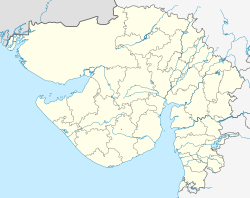Institute of Rural Management Anand
 |
|
| Motto | "सा विद्या या विमुक्तये"(Sanskrit) |
|---|---|
| Type | Autonomous |
| Established | 1979 |
| Founder | Dr. Verghese Kurien |
| Chairman | T. Nand Kumar |
| Director | Dr. R.C.Natarajan |
|
Academic staff
|
25 |
| Students | 210 (2013) |
| Location |
Anand, Gujarat, India 22°32′18″N 72°58′22″E / 22.5384°N 72.9729°ECoordinates: 22°32′18″N 72°58′22″E / 22.5384°N 72.9729°E |
| Campus | Urban, 60 acres (240,000 m2) |
| Website | www.irma.ac.in |
| Institute rankings | |
|---|---|
| Business – India | |
| Careers360 | 7 |
Institute of Rural Management Anand (IRMA) is an autonomous institution located in Anand in Gujarat, India with the mandate of contributing to the professional management of rural organisations. IRMA was founded with the belief, borne out by Dr. Verghese Kurien’s work in the dairy co-operatives which revolutionized the dairy industry in the country, that the key to effective rural development is professional management.
It was founded at the initiative of NDDB (National Dairy Development Board) and the support of government of India, government of Gujarat and Swiss Development Co-operation. IRMA works with co-operatives, NGOs (non-governmental organisation), governments, Indian national and international agencies.
IRMA provides management training, support and research facilities to students committed to rural development; in this process it has brought within its ambit several co-operatives, non-government organisations, government development agencies, international development organisations and funding agencies.
Dr. Michael Halse, then a Food and Agriculture Organization (FAO) planning adviser with NDDB, was one of the people responsible for conceptualizing this new discipline of rural management. Another person involved with the institute was the organizational behavior academic Dr. Kamala Chowdhary, who also served briefly as the director of the institute and played a key mentoring role in its formative years. The former director of Indian Institute of Management Ahmedabad Ravi J. Matthai contributed; through his documented learnings from the Jawaja experiment. Matthai stressed the need for a new type of management education, different from the conventional Indian Institute of Management one: for working on rural development problems.
The institute was initially budgeted as a center for management and consultancy for rural development, under the second phase of the Operation Flood program. Under the chairmanship of Dr. Verghese Kurien, IRMA evolved quickly to enlarge its mandate to professionalize management of rural producers’ organisations and create a body of knowledge in the field of rural management.
One of the pioneering and senior faculty in the initial years was anthropologist and equity-feminist scholar Leela Dube. One of her studies, through field work in five Southeast Asian countries, put the organisation on the international social science research map.
Beginning with co-operatives funded by NDDB, IRMA has reached out to the rural sector through development organizations engaged with issues of rural life such as natural resource management (especially water and forests), rural health, local governance institution, livelihood, migration, microfinance, and deploying IT for rural areas.
...
Wikipedia

